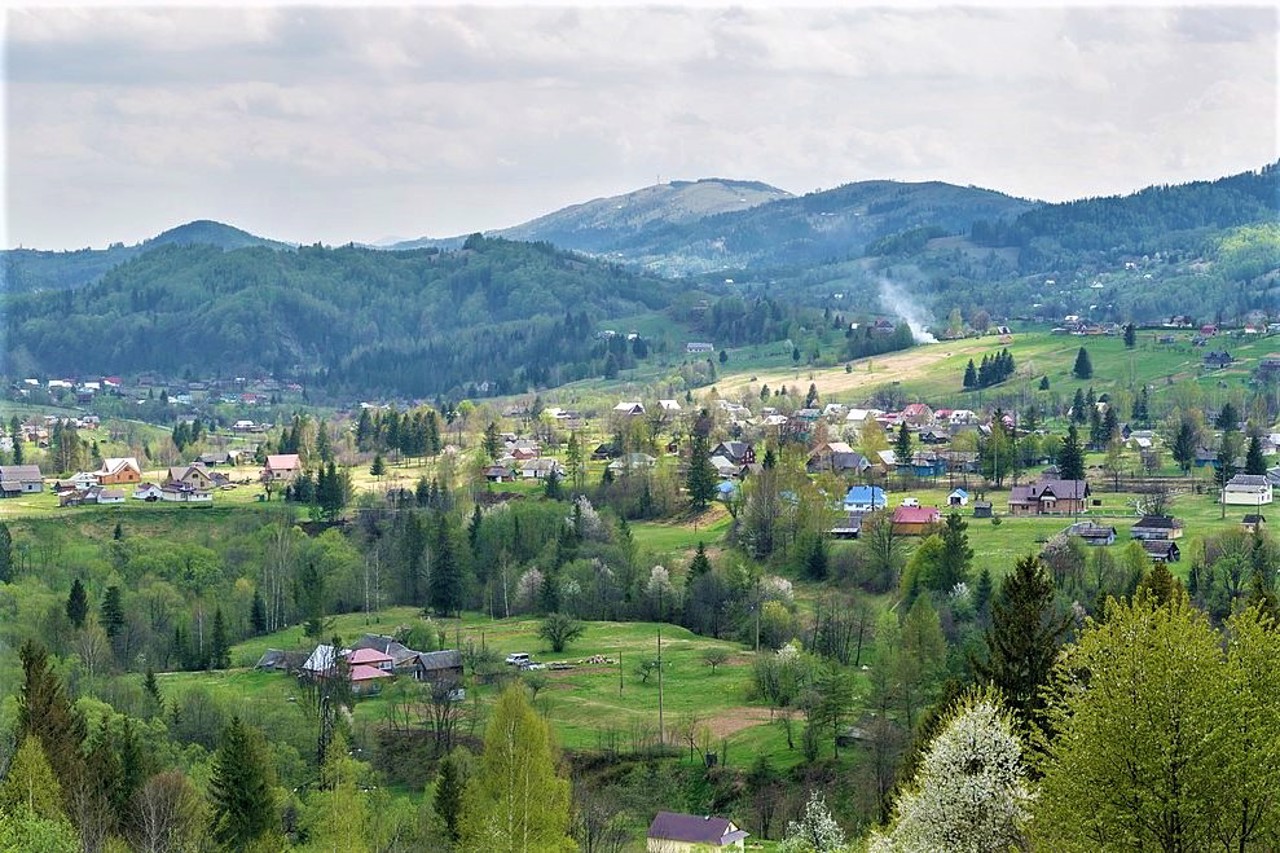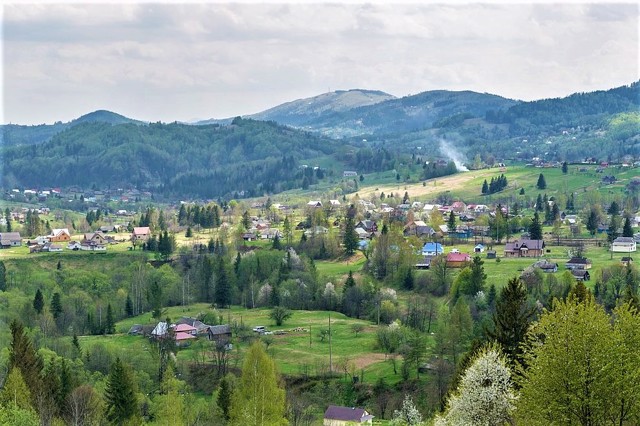Functional temporarily unavailable
General information about Kosmach
The ancient high-altitude Hutsul village of Kosmach, shrouded in legends and tales, is one of the main centers of culture and folk crafts of the Hutsul Region.
The first written mention dates back to 1412, but the origin of the settlement is attributed to the times of the Halicia-Volyn Principality. According to legend, the name of the first settler was Ivan Kosmachuk. At the end of the 15th century, the first church was built. Until 1772, these lands were under the rule of Poland and were owned by the Yablonsky landowners.
The fate of Oleksa Dovbush, the leader of the sprays, is closely connected with Kosmach. This is where his struggle against the oppressors began, where he formed the first rebel squad, and died at the hands of a traitor. A monument was erected in the vill ...
The ancient high-altitude Hutsul village of Kosmach, shrouded in legends and tales, is one of the main centers of culture and folk crafts of the Hutsul Region.
The first written mention dates back to 1412, but the origin of the settlement is attributed to the times of the Halicia-Volyn Principality. According to legend, the name of the first settler was Ivan Kosmachuk. At the end of the 15th century, the first church was built. Until 1772, these lands were under the rule of Poland and were owned by the Yablonsky landowners.
The fate of Oleksa Dovbush, the leader of the sprays, is closely connected with Kosmach. This is where his struggle against the oppressors began, where he formed the first rebel squad, and died at the hands of a traitor. A monument was erected in the village and the Dovbush Museum was opened.
The first "Prosvita" library in the region was opened here.
During the Second World War, UPA troops were active in the village, in 1944 the Kosmach Republic was proclaimed here.
In Soviet times, the wooden church of St. Paraskeva, in the construction of which Oleksa Dovbush took part in 1718, was destroyed (the unique iconostasis is preserved in the Kyiv Museum of Ukrainian Art).
The wooden church of Petro and Paul (1904) has been preserved.
Kosmach is famous for masters of Hutsul embroidery and pysankarstva (painting of Easter eggs).
In the first days of May, the festival "Easter in Kosmach" is held.
Green tourism is developing.
Старовинне високогірне гуцульське село Космач, овіяне легендами й переказами, є одним з головних центрів культури і народних ремесел Гуцульщини.
Перша письмова згадка датується 1412 роком, але виникнення поселення відносять до часів Галицько-Волинського князівства. За легендою, першого поселенця звали Іван Космачук. В кінці XV сторіччя була побудована перша церква. До 1772 року ці землі перебували під владою Польщі, були у володінні поміщиків Яблонських.
З Космачем тісно пов'язана доля ватажка опришків Олекси Довбуша. Звідси почалася його боротьба з гнобителями, тут він сформував перший повстанський загін, і тут же загинув від руки зрадника. В селі встановлено пам'ятник і відкрито музей Довбуша.
Тут була відкрита перша в регіоні бібліотека "Просвіти". ...
Старовинне високогірне гуцульське село Космач, овіяне легендами й переказами, є одним з головних центрів культури і народних ремесел Гуцульщини.
Перша письмова згадка датується 1412 роком, але виникнення поселення відносять до часів Галицько-Волинського князівства. За легендою, першого поселенця звали Іван Космачук. В кінці XV сторіччя була побудована перша церква. До 1772 року ці землі перебували під владою Польщі, були у володінні поміщиків Яблонських.
З Космачем тісно пов'язана доля ватажка опришків Олекси Довбуша. Звідси почалася його боротьба з гнобителями, тут він сформував перший повстанський загін, і тут же загинув від руки зрадника. В селі встановлено пам'ятник і відкрито музей Довбуша.
Тут була відкрита перша в регіоні бібліотека "Просвіти".
Під час Другої світової війни в селі активно діяли війська УПА, в 1944 році тут була проголошена Космацька республіка.
В радянські часи була знищена дерев'яна церква Святої Параскеви, в будівництві якої в 1718 році брав участь Олекса Довбуш (унікальний іконостас зберігається в київському музеї українського мистецтва).
Збереглася дерев'яна церква Петра і Павла (1904 рік).
Космач знаменитий майстрами гуцульської вишивки та писанкарства (розпису великодніх яєць).
У перших числах травня проводиться фестиваль "Великдень у Космачі".
Розвивається зелений туризм.
Сплануй своє перебування у Kosmach
What to see and where to go in Kosmach
Tourist attractions and museums of Kosmach
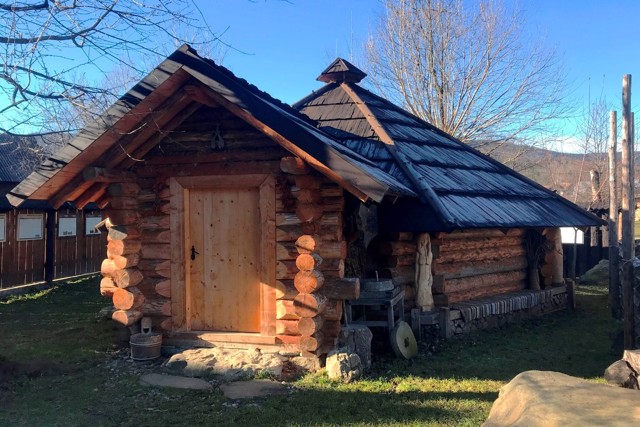
Butynar Museum-Manor
Museum / gallery
The Museum of Carpathian loggers-butynars is part of the "Butynar" eco-mansion, which opened in Kosmach in 2021.
At the heart of the open-air museum exposition (skansen) is a reproduced wooden hut of butynars, in which they lived while working in the mountains. In the hut you can see working tools and household items of loggers: saws, axes, wooden utensils, etc.
On the porch of the Hutsul hut, there is an exhibition of miniatures, which demonstrate the daily life of butynars. Another exhibit of the museum complex is a tavern.
In the yard - an ancient space carriage and wooden sculptures of mythical creatures from Hutsul folklore. Samples of Carpathian wood, old maps, and other tourist attractions of Kosmach are displayed at the stands.
The estate complex includes a rest house above the pond.
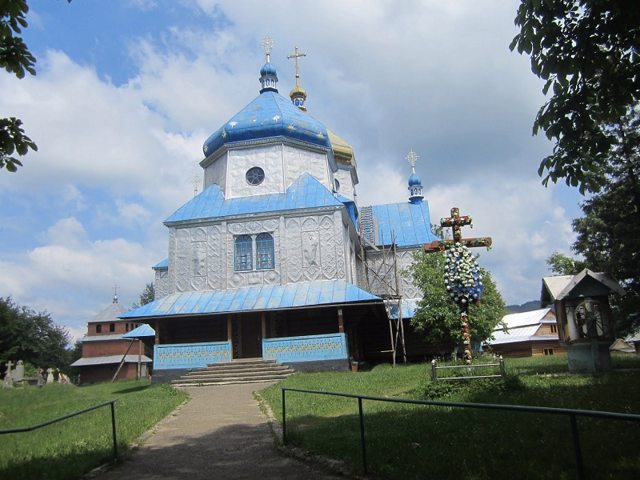
Holy Apostles Peter and Paul Church
Temple , Architecture
The wooden church of the Holy Apostles Peter and Paul in Kosmach was built in 1904.
At first, it held Greek Catholic services, but after the 1946 cathedral, it became a parish of the Russian Orthodox Church, and in the early 1990s it transferred to the Ukrainian Autocephalous Orthodox Church.
In 1965-1770, Volodymyr Romanyuk, the future patriarch of the Orthodox Church of Ukraine, served as a priest in the Peter and Paul Church in Kosmach.
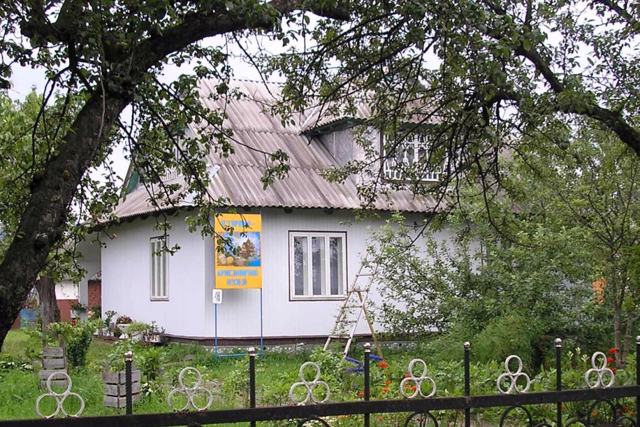
Kosmach Local Lore Museum
Museum / gallery
The private historical and local lore museum in Kosmach was opened in 1999 by a local historian and collector Lyubov Vartsabyuk.
The exhibition in three halls tells about the history of the village of Kosmach, the construction of local churches and prominent residents of Kosmach.
The largest section of the museum is dedicated to the life and work of Patriarch Volodymyr (Vasyl Romanyuk), who served in the local church of Peter and Paul in 1968-1972.
The museum also has large collections of the works of Kosmach embroiderers and pysankarkas, modern Kosmach clothing and weaving products.
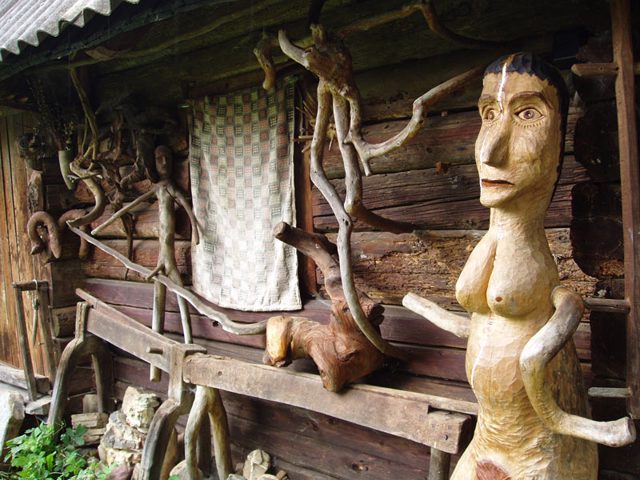
Oleksa Dovbush Museum
Museum / gallery
The private museum of the history of the Opryshky movement of Oleksa Dovbush was created in Kosmach in 1988 by local historian and folk craftsman Mykhaylo Yusypchuk-Didyshyn.
He moved the old Hutsul hut of the Dzvinchuk family to his residence, near which, according to legend, in 1745, the leader of the Opryshky, Oleksa Dovbush, died at the hands of a traitor.
The exhibition presents household items, weapons from the time of the Opryshky movement and rare items: bartki, axes, keptars, cheres and much more. One of the most interesting exhibits is an ancient gun with which, according to legend, Oleksa Dovbush was shot.
The museum also has unusual sculptures made of wood and stone, which are created by the owner of the museum.
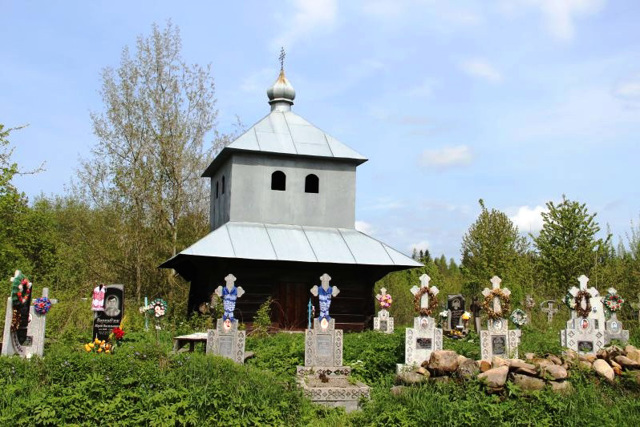
Saint Paraskeva Church
Temple , Architecture
The wooden church of Saint Paraskeva with a bell tower was built in the center of the village of Kosmach in 1753.
In the early 1960s, the church was closed by the Soviet authorities. At the same time, some of the icons from the church iconostasis were taken to Kyiv for the filming of Serhiy Paradzhanov's film "Shadows of Forgotten Ancestors". After the filming, the icons were transferred for storage to the Arts of Prykarpattya Museum in Ivano-Frankivsk, which saved them from destruction by the fire that destroyed the church of Saint Paraskeva in 1983.
The bell tower, damaged by the fire, was saved and restored.
Reviews Kosmach
Geographical information about Kosmach
| {{itemKey}} | {{itemValue}} |
|---|---|
| Region |
Ivano-Frankivsk |
